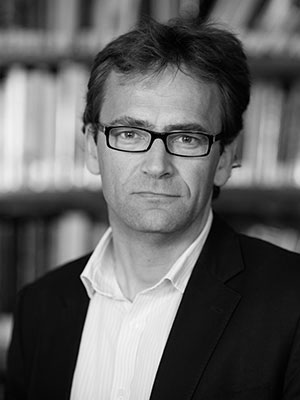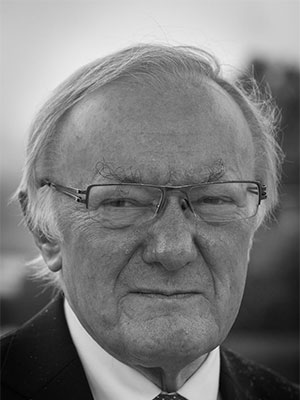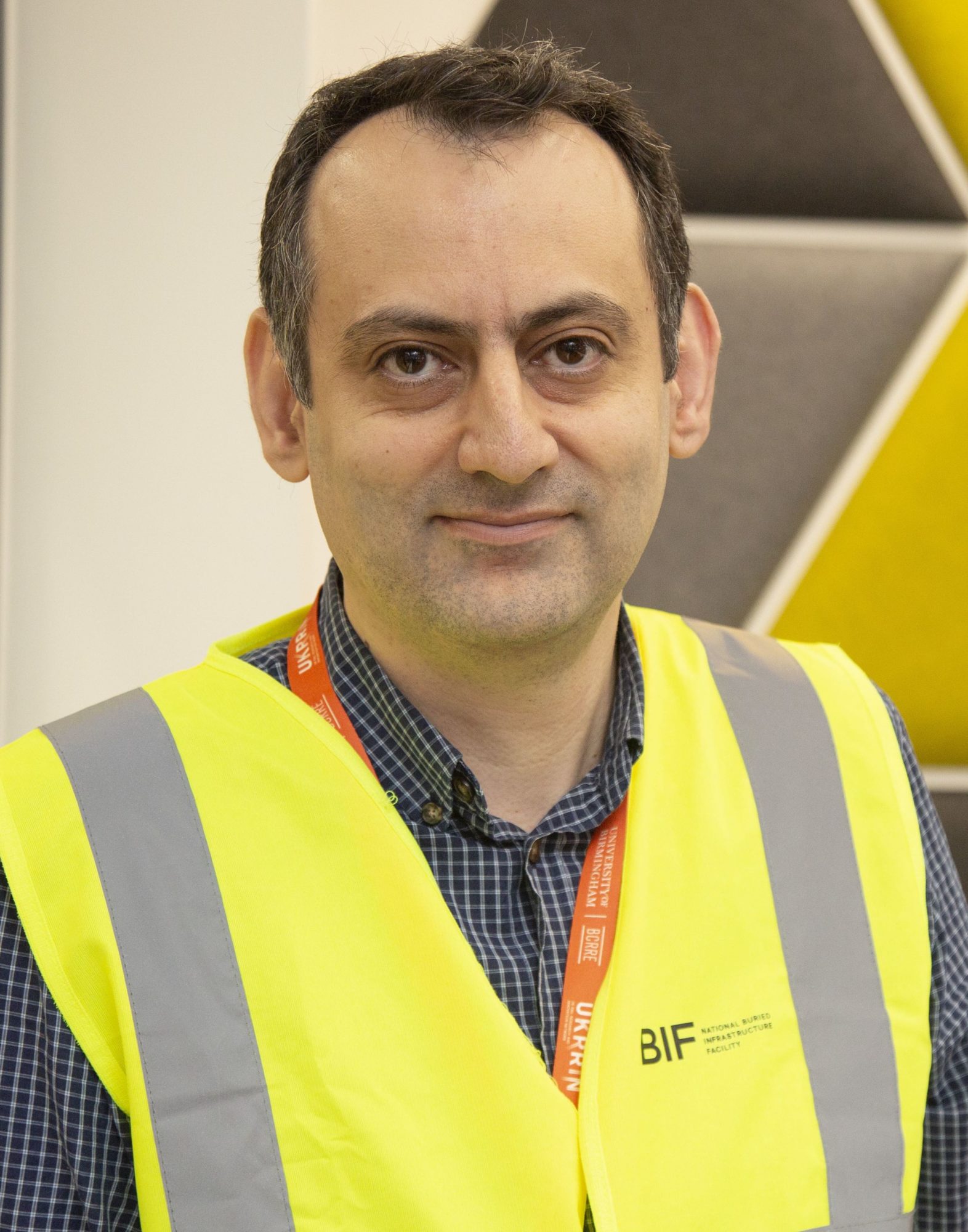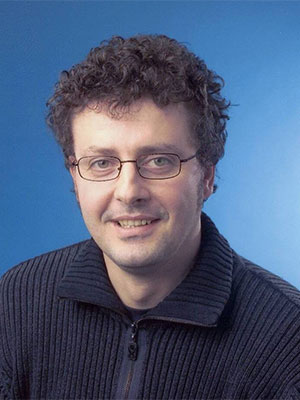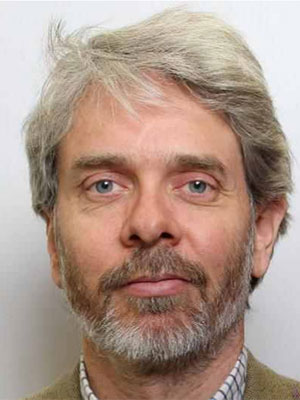
The DAFNI programme would like to thank the current Chair and Strategy board members for extending their term with us, continuing their commitment and dedication to developing the DAFNI platform and advising on DAFNI requirements as well as developing a community of researchers on the platform.
Prof. Jim Hall
Chair of DAFNI Governance Board
Professor Jim Hall FREng is Professor of Climate and Environmental Risks in the School of Geography and the Environment, a Senior Research Fellow in the Department of Engineering Science and fellow of Linacre College.
His research focuses upon management of climate-related risks in infrastructure systems, in particular relating to various dimensions of water security, including flooding and water scarcity.
Prof. Michael Batty
Professor Michael Batty CBE FRS FBA is Professor of Planning at UCL, where he is Chair of the Centre for Advanced Spatial Analysis (CASA). His work is focussed on computer models of cities and their visualisation.
His most recent book The Computable City is published by MIT Press (2024) and his research is at http://www.complexcity.info
Prof. Simon Blainey
Prof. Simon Blainey is Professor of Sustainable Transport and Head of the Transportation Research Group at the University of Southampton.
His research interests centre on understanding, modelling and visualising the interdependencies between transport and other human and natural systems.
Dr Asaad Faramarzi
Dr Asaad Faramarzi is an Associate Professor of Geotechnical Engineering at the University of Birmingham.
His research focuses on the development of innovative computational solutions to tackle complex problems in modelling ground and structural engineering, geotechnical infrastructure, and novel sensing technologies.
Dr Ruchi Choudhary
Dr Ruchi Choudhary is Reader of Architectural Engineering in the Engineering Department at University of Cambridge. She specializes in simulation methods for predicting energy demand of the built environment.
She is leading the research group on Digital Twins of Built Environment funded by UKRI programme ‘AI for Science & Government’ (ASG) at the Alan Turing Institute (2018-2021).
At Cambridge, she leads the multi-disciplinary Energy Efficient Cities Initiative, initially funded by a Science & Innovation award at Cambridge.
Prof. Daniel Coca
Professor Daniel Coca is Head of the Department of Automatic Control and Systems Engineering at the University of Sheffield. His research work spans the broad area of nonlinear and complex dynamical systems.
He is interested in developing novel mathematical, computational and analytical methods to analyse, model and control complex dynamical systems as well as apply the tools developed to complex systems in physics, engineering, life sciences and finance.
Prof. Stephen Hallett
Stephen Hallett is a Professor in Applied Environmental Informatics at Cranfield University. He has long-standing expertise in the application of spatial decision-support systems, big data, GIS, remote sensing and informatics in environmental science, particularly with soil resource systems and the natural environment.
Stephen’s research interests include agri-informatics; soil and land resource management; geohazards and urban infrastructure; and environmental risk mitigation and climate change impacts.
Prof. Julien Harou
Professor Julien Harou is the Chair in Water Engineering at The University of Manchester. His group researches water resources planning and management, water-energy-food-environment systems, climate change adaptation and mitigation, and water and infrastructure system software.
Initially focused on UK water infrastructure planning, the group’s case-studies now include large human-natural systems in Africa and Asia. He was research director of the UKRI-funded FutureDAMS project.
He serves on the national water resources senior steering group, the CIWEM water resources panel, and the programme committee of IWMI’s board of governors.
Dr Giuliano Punzo
Giuliano Punzo obtained an MEng in Aerospace Engineering at the University of Naples (Italy) before getting his PhD in swarm engineering at the University of Strathclyde, Glasgow.
With a core focus on distributed systems, Giuliano moved from aerospace to infrastructure and socio-technical systems, using modelling techniques in the areas of network science, control theory and game theory.
Dr Punzo is a Lecturer at the University of Sheffield, director of the Sheffield Urban Flows Observatory, where he also leads the transport theme and member of the DAFNI Strategy Board.
Prof. Phil James
Professor Phil James is Professor of Urban Data at Newcastle University. His research encompasses the use of urban data, especially real-time data, in addressing urban challenges such as urban mobility, air pollution, carbon reduction.
He leads the Urban Observatory Programme in Newcastle, one of the largest programmes of urban environmental monitoring in Europe. His work crosses discipline boundaries in engineering, computing science and increasingly into policy and evidence.
He is a fellow of the Royal Geographical Society and has a background in spatial analytics.
Prof. Nik Lomax
Nik Lomax is Professor of Population Geography at the University of Leeds and a fellow at the Alan Turing Institute for data science and artificial intelligence.
His research includes the development of policy microsimulation models, estimation and projection of ethnic group populations, small area projections, modelling of migration, and the use of consumer data in demographic research.
Nik is co-director of the ESRC funded Consumer Data Research Centre.
Prof. Theodoros Tryfonas
Professor Theo Tryfonas is a Professor of Infrastructure Systems and Urban Innovation at the Department of Civil Engineering at the University of Bristol, with a background in systems engineering, software development and cyber security.
His research extends to secure and resilient operation of the Internet of Things, energy-efficient wireless sensor networks, privacy and data protection in mobile computing and open data architectures for smart buildings and infrastructure.
Prof. Liz Varga
Professor Liz Varga is head of the Infrastructure Systems Institute at UCL. She is an international research leader on complex critical infrastructure.
She is a commissioner with the National Preparedness Commission. Her main research interests are resilience, decarbonisation, and digitalisation of critical infrastructures so that essential services are reliable, affordable, accessible, and nature friendly.
She uses a range of computational and data science methods to examine infrastructure systems and the systems they co-evolve with so that decision making for planning, operations, and policy can be improved.

Dr Juan Bicarregui
Head of Data Division, Scientific Computing, STFC
Interested in collaborating with DAFNI?
If you would be interested in using DAFNI, would like to access Data on DAFNI or involve us in a new project, we would like to hear from you. Please complete your details on the contact form using the link and we will be in contact with you by email.

